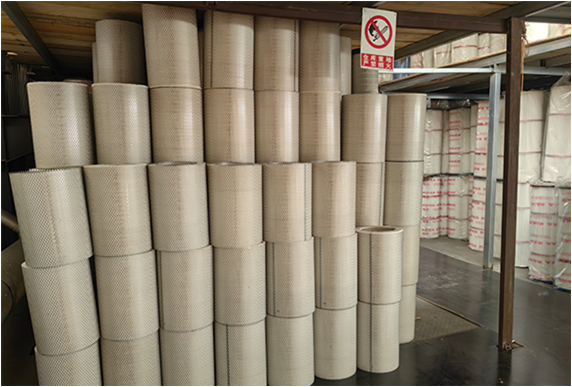 Tel:
+8615930870079
Tel:
+8615930870079
Dec . 10, 2024 02:32 Back to list
High Efficiency Sintered Metal Filter Cartridge for Industrial Filtration Applications
Sintered Metal Filter Cartridges A Comprehensive Overview
Sintered metal filter cartridges have emerged as a reliable and efficient solution for a wide range of filtration applications across various industries. These cartridges are designed to provide excellent filtration performance while ensuring durability and longevity, making them a preferred choice for businesses looking to enhance their filtration systems.
What are Sintered Metal Filter Cartridges?
Sintered metal filter cartridges are created by a process known as sintering, where metal powders are heated until their particles adhere to each other without melting. This results in a porous filter medium that allows for the efficient passage of fluids while trapping impurities and particulate matter. The sintering process can produce filters with varying pore sizes, tailored to meet specific filtration requirements.
These cartridges are typically made from stainless steel, bronze, or other metal alloys, providing strength and resistance to corrosion and high temperatures. The robustness of sintered metal filters makes them especially suited for demanding environments, such as chemical processing, oil and gas, and food and beverage production.
Advantages of Sintered Metal Filter Cartridges
1. Durability One of the most significant benefits of sintered metal filter cartridges is their durability. Unlike traditional paper or cloth filters, sintered metal filters can withstand extreme temperatures and pressures, making them ideal for harsh industrial environments.
2. Reusability Sintered metal filters can often be cleaned and reused, significantly reducing waste and operational costs. They can be backwashed, brushed, or subjected to other cleaning methods to maintain their filtration efficiency, providing a more sustainable option compared to disposable filters.
3. High Filtration Efficiency These cartridges offer high filtration efficiency, with the ability to filter out particulates as small as a few microns. This precision ensures that the fluids processed are of high purity, which is crucial in industries like pharmaceuticals and electronics.
sintered metal filter cartridge

4. Customizability Sintered metal filters can be manufactured in various sizes, shapes, and pore structures, allowing them to be tailored to specific filtration needs. This flexibility makes them suitable for diverse applications, from filtration in HVAC systems to liquid and gas filtration in industrial processes.
5. Chemical Compatibility The choice of materials used in sintered metal filter cartridges often makes them resistant to a wide range of chemicals. This characteristic is essential for industries where filtration media may come into contact with corrosive substances.
Applications of Sintered Metal Filter Cartridges
Sintered metal filter cartridges find applications in numerous industries
- Chemical Processing Used for the filtration of chemicals, solvents, and gases to ensure product quality and compliance with regulations. - Oil and Gas Employed for the filtration of lubricants and fuel, helping to maintain equipment efficiency and prevent damage from particulate matter.
- Pharmaceuticals Critical in maintaining cleanliness and compliance in the manufacturing processes of drugs and medical devices.
- Food and Beverage Utilized for filtering liquids during production processes, ensuring that products meet safety and quality standards.
Conclusion
In conclusion, sintered metal filter cartridges represent a versatile and efficient solution for a variety of filtration challenges. Their durability, reusability, and high filtration efficiency make them an attractive option for industries that require reliable performance under demanding conditions. As the focus on sustainability and efficiency continues to grow, the adoption of sintered metal filters is likely to expand, highlighting their importance in modern industrial applications. Selecting the right sintered metal filter cartridge can lead to significant improvements in operational efficiency and product quality, making them indispensable tools in the filtration industry.
-
Nano Fiber Technology: Revolutionizing Cartridge Dust Collector FiltersNewsAug.06,2025
-
How Activated Carbon Air Cartridges Eliminate OdorsNewsAug.06,2025
-
Dust Filter Cartridge Handling Fine Particulate MatterNewsAug.06,2025
-
Cartridge Dust Collector Filter for Welding Fume ExtractionNewsAug.06,2025
-
Activated Carbon Filter Cartridge Effectiveness Against VOCsNewsAug.06,2025
-
Activated Carbon Air Filter Cartridge Benefits ExplainedNewsAug.06,2025

 Email:
Email:





